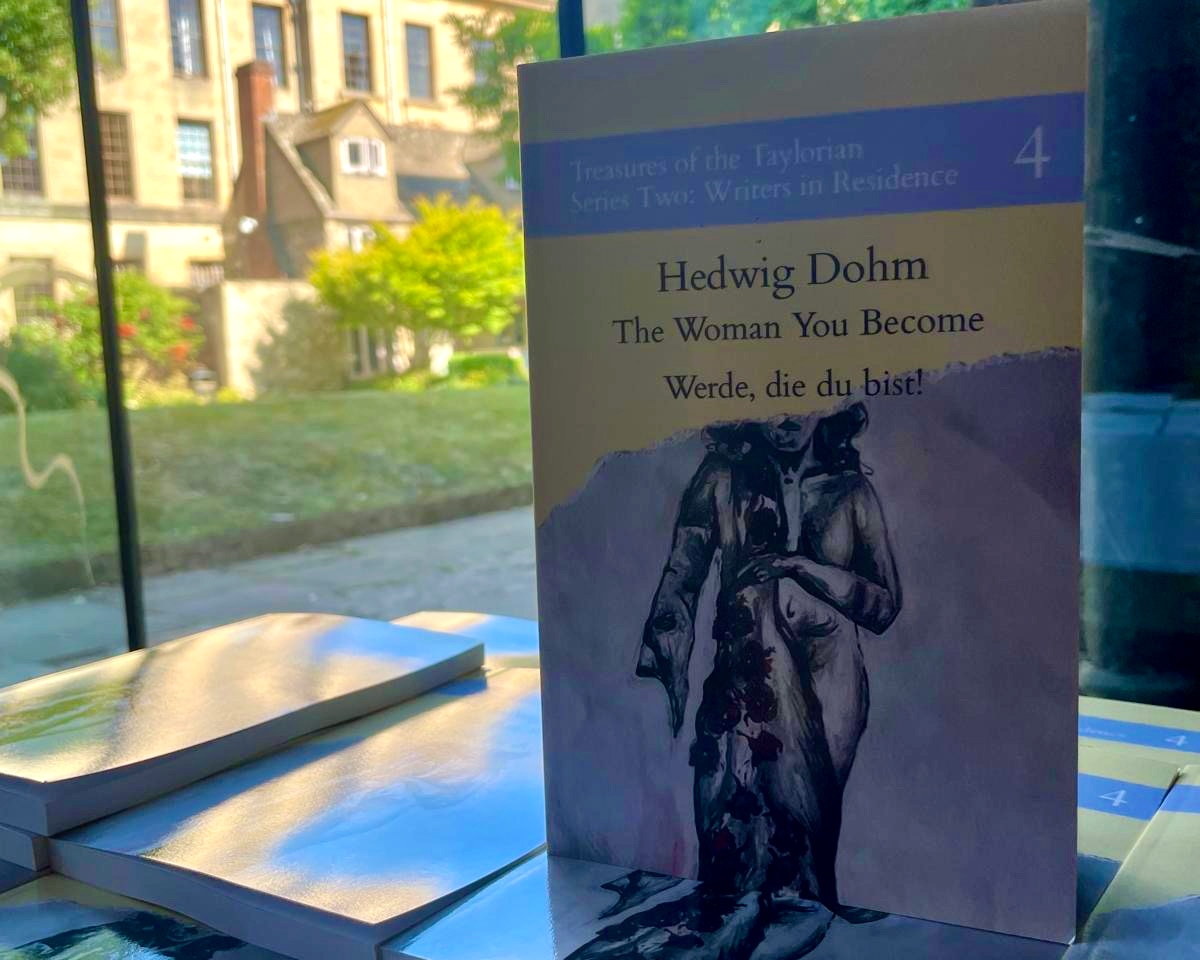From January to June 2025, I undertook with a group of four second-year students in German at the University of Oxford a translation of the short story ‘Werde, die Du bist!’ (1894) by the German writer Hedwig Dohm.
I taught this text to some of the students as part of a class on German Women’s Writing and their enthusiasm for Dohm’s narrative and its feminist message led me to choose it as a creative translation project. We had the incredible opportunity to publish it as a bilingual edition under the title ‘The Woman You Become’ with the Taylor Editions’ ‘Writers in Residence’ series, edited by Henrike Lähnemann (Oxford).
As we had discussed this text in relation to the birth of feminism in Germany (Hedwig Dohm, born in 1831 was a famous feminist essayist and among the first women of her generation to demand the right to vote), it seemed evident to us that ourtranslation should be a feminist one. Naively perhaps, we thought that this would be a straightforward process. But we quickly realised that a feminist translation, in practice, is not merely a matter of conveying the author’s feminist message faithfully, but is also a stylistic exercise, one that encourages us to think about how the English language can be played with and adapted to our purposes. This meant making creative choices in English. For instance, we chose to translate the expression ‘mein Ich’ as ‘my Self’. The literal translation, ‘my I’, does not work in English, but the word ‘Self’ (which we capitalised throughout our translation) works as an interesting visual symbol of the female character’s search for her identity. We also aimed to convey how Dohm plays with the grammatical genders found in German. The word ‘die Natur’ (nature), grammatically feminine in German, is associated with the feminine realm in Dohm’s short story and that is why we chose to consistently use for it the pronoun ‘she’ instead of ‘it’ to reflect Dohm’s poetic meaning.
As the tutor, it was important for me to foster an atmosphere of collaboration and reflect, along with the students, on how translation can be a creative but also political endeavour. Collaboration meant breaking down some of the hierarchies within the classroom. This emerged quite easily: I am French native speaker and while I can say that I am an expert on this text, I am no expert of the English language and thus relied on my students to tackle the challenge of translating this text into their native tongue. I do think this allowed us to have a more equal dialogue: I brought my expertise of the nineteenth-century context and my knowledge of the text and its author, and my students brought their creativity, passion, and hard work.
This project was an opportunity for us as a group to (re)discover translation as a creative endeavour but also to reflect, paragraph by paragraph how to convey, both in form and content, the political meaning of a text that has its place in our feminist literary canon. We hope that this bilingual edition will make it accessible to a vast audience and will be used as a pedagogical tool, whether in literature or translation classes.
- Purchase the translation
- E-book version coming soon.
Marie Martine
University of Oxford

Your article helped me a lot, is there any more related content? Thanks!